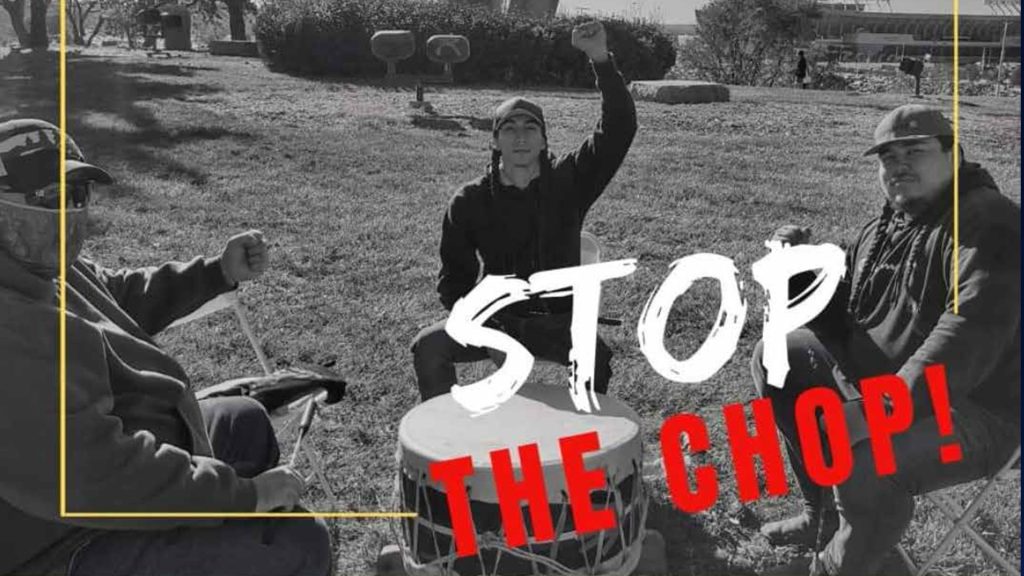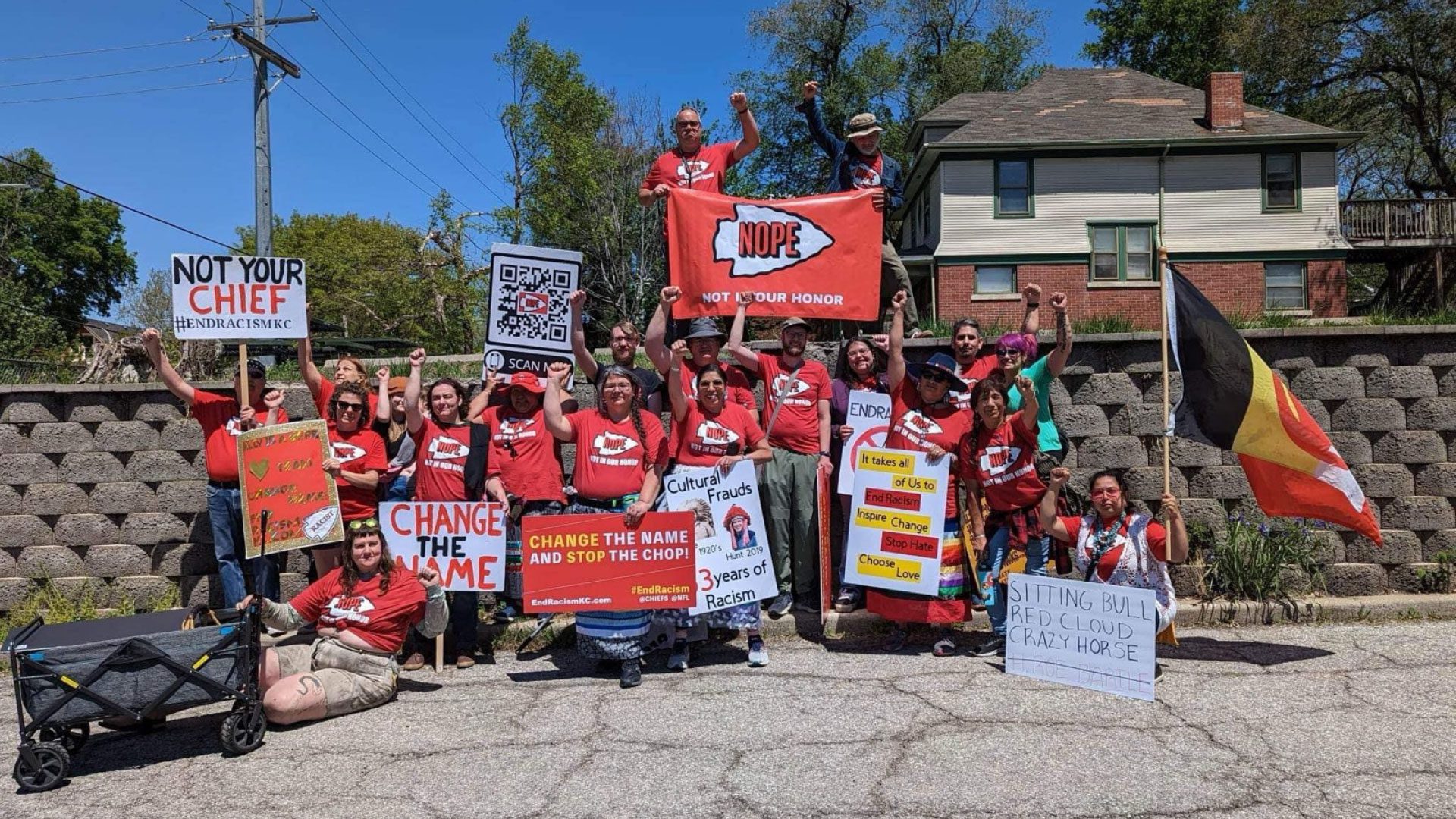
Native American groups plan to protest racist and stereotypical beahviour at the Super Bowl. Photo: submitted
Gaylene Crouser is heading to the Super Bowl for the second year in a row even though it’s the last thing she wants to do.
“I don’t want to do any of that,” said Crouser, executive director and founder of the Kansas City Indian Center. “I don’t want to have people yell at me and I don’t want to be abused.
“Honestly, I never would have imagined I would have to, but here I am. We really don’t have the luxury of not participating.”
Some Native American groups have called a news conference for the day before the Kansas City Chiefs meet the San Francisco 49ers in the NFL championship game on Sunday in Las Vegas, to shine the media spotlight on what they say is the Chief’s cultural appropriation of their spiritual and cultural names and symbols.
The coalition is opposed to the team’s name, logo, use of a big drum and the “tomahawk chop” arm gesture, as well as the wearing of headdresses and face paint at games.

Crouser, who is Sioux, says the racist and disrespectful appropriation harms “our youth and their self-esteem” and feeds negative bias of Native Americans.
“If we’re seen as a cartoon it’s hard to get people to take us seriously on things that matter to us like sovereignty, water rights and mental health,” she said in an interview.
That’s not only Crouser’s opinion. It’s also according to research by the American Psychological Association that shows continued use of American Indian mascots, symbols, images and personalities has a negative effect on American Indian students and all students.
The owner and team have said little publicly about the controversy. But did ban the wearing of headdresses in its home stadium in 2020, a month after the Washington team dropped its controversial name.
Yet “a fan wearing a headdress walked right past protesters at a game in September 2023,” said Not In Our Honour member Rhonda LeValdo, who is Acoma Pueblo, in an interview.
“We have received photos of fans in headdresses in the stadium from allies attending games.”

LeValdo said television networks have stopped showing the fans wearing headdresses and red face paint, but the team still encourages stereotypical behavior with its music and home game antics.
Crouser says her organization has never heard from the team or the league.
APTN’s attempts to reach media representatives for the Chiefs and NFL were not successful.
However, the addition of American pop superstar Taylor Swift to cheer on her Chiefs’ boyfriend Travis Kelce has given the coalition new hope, said Crouser.
“We would love to have Taylor Swift say, ‘Hey, don’t do the chop.’ We’ve watched her … and people all around her are sitting there doing the ‘tomahawk chop’ and she’s just standing there dancing.”

Swift would be a powerful ally because she has used her voice to advocate for various causes, noted Crouser.
“If she were to take that up for us we would absolutely be grateful for that.”
Attempts to reach Taylor Swift’s camp were unsuccessful.
The Saturday news conference is expected to draw members of tribes in Nevada and Arizona, said LeValdo. On game day, they plan to protest in front of the stadium.
“That’s why what we do is so important,” she added, “because sometimes the looks on people’s faces when we’re protesting. It’s like they’ve never even considered that anybody wouldn’t be OK with it.”
Second year
This is the second year the coalition has protested outside the Super Bowl game.
“People in different countries think we like this, that it’s honoring us,” LeValdo said. “We’re trying to let people know (that) No, it doesn’t honour us.”
She also questioned how the NFL permits the behaviour in the face of the league’s Super Bowl – Fan Code of Conduct.
“It says: Offensive language or obscene gestures, this includes the use of such language or gestures concerning a person’s race, ethnicity, color, gender, religion, creed, disability, age, sexual orientation, gender identity/expression or national origin; or to instigate, incite or encourage a confrontation or physical assault.”
Meanwhile, two Indigenous players were expected to be part of the big game.
Chiefs’ centre Creed Humphrey, Citizen Potawatomi Nation, and long snapper James Winchester, Choctaw Nation of Oklahoma, were listed as part of the offensive line.
And a San Francisco 49ers Gold Rush cheerleader identifies as Apache on the team’s website. Her name is listed as Cassie.










